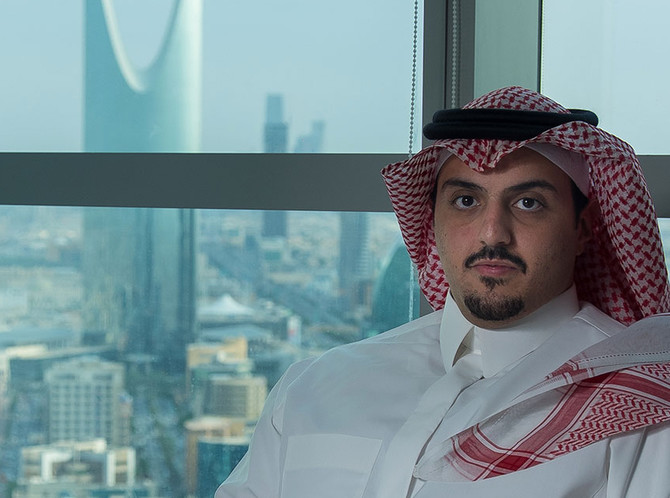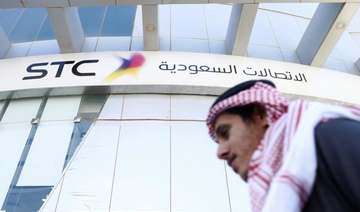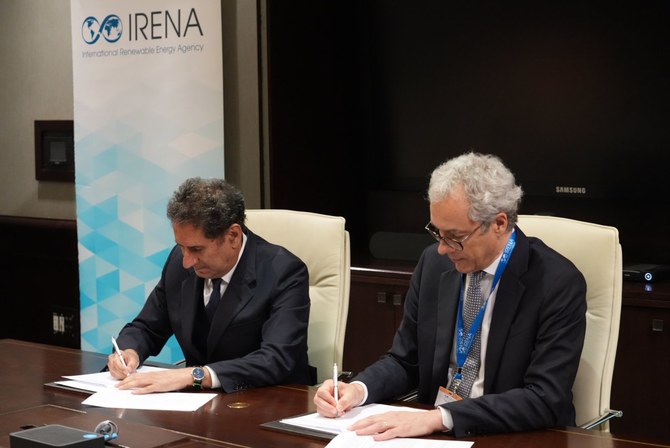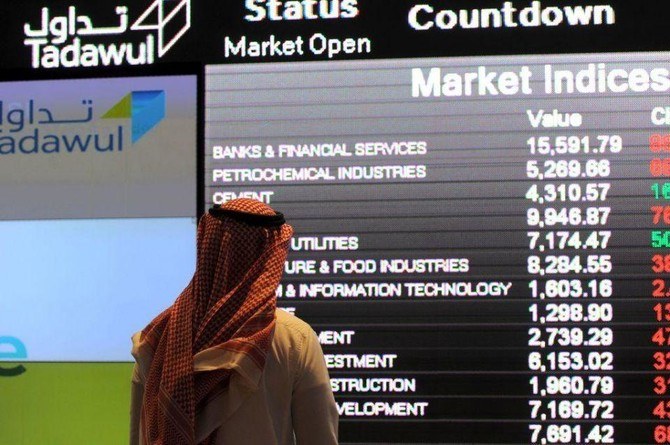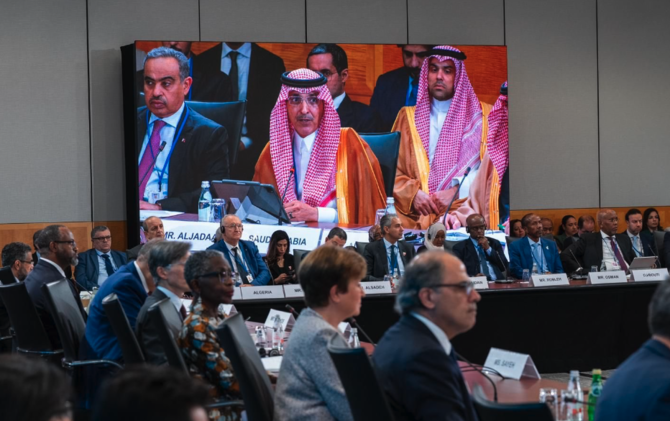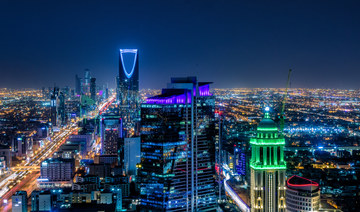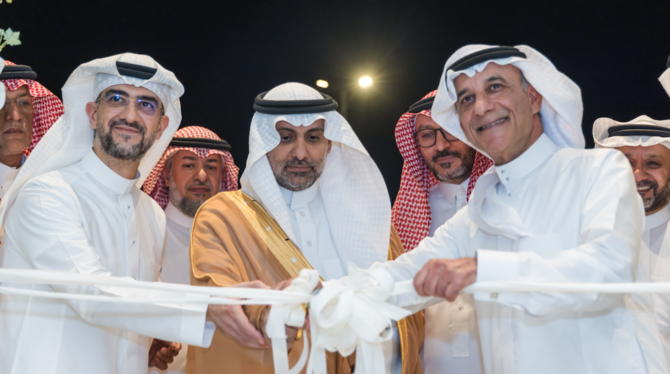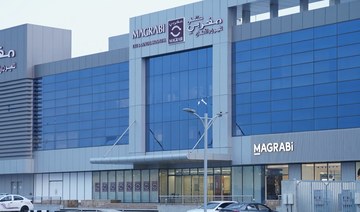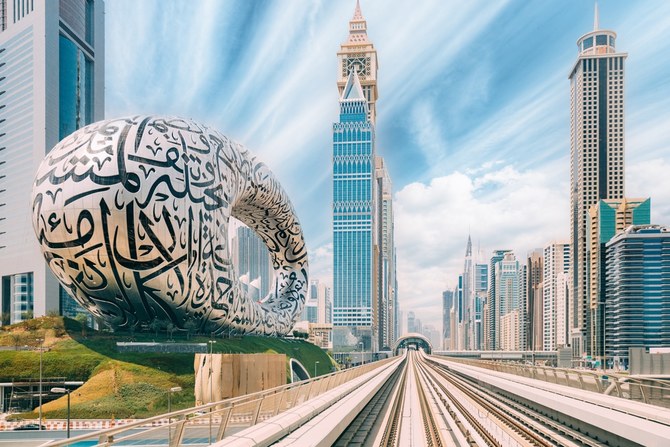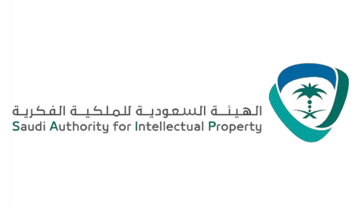"We pursue the moonshots,” said Abdulrahman Tarabzouni, but he was not taking about the space industry.
Tarabzouni is the chief executive and managing director of Saudi Arabia’s newest technology investment fund, STV. It began operations just over a year ago, independently managed but backed by the Kingdom’s communications giant Saudi Telecom, aiming to exploit opportunities in the technology sector, which has been identified as core to the Vision 2030 economic development strategy.
STV is looking for world-changing investment opportunities. “As venture capitalists, we are seeking ideas that improve things by a factor of 100, not by a factor of 10. I think that’s the same spirit that we see nowadays in Saudi Arabia from the top down,” he explained.
Tarabzouni typifies the new generation of Saudi business leaders who are leading the top-down transformation of the country and its economy, and the journey away from oil dependency.
An early career stint at Saudi Aramco and education at the Massachusetts Institute of Technology led to specialization in that part of the global economy where finance meets technology. After seven years with Google in California, Tarabzouni returned to Saudi Arabia to lead the venture with Saudi Telecom.
------------------------
Bio
Education
Massachusetts institute of technology, bachelors and masters in electrical engineering and computer science
Career
Member, Innovation leadership advisory board, Saudi Aramco
Financial trading technology analyst, Morgan Stanley
Strategy consultant, Oracle
Board member, Microsoft Board of the Future
Co-founder, Syphir tech company
Regional head of emerging Arabia and other roles, Google
Member of investment committee, Middle East Venture Partners
Various advisory roles at public and technology institutions in KSA
Board of directors, careem
Ceo and MD, STV
------------------------
The Kingdom is the perfect environment for the next phase of the digital revolution, he believes. “Saudi Arabia’s incredible resources, demographics and untapped potential to leapfrog its peers in terms of digital share of GDP, and the strong top-down will in the country to see this happen are strong enablers for a thriving venture ecosystem.
“We need to capitalize on the economic and strategic weight Saudi Arabia carries regionally and its ability to influence technology and consumer trends across the region, due to its market size and growing tech-user base,” he said.
Tarabzouni thinks the venture capital industry has a vital role to play in this transformation. “It is a balanced way of multiplying the number of players, companies, and ‘shots’ the ecosystem is taking to create new economic opportunities. Startups are new bets to create new forms of value, and venture capital firms are engines that can do this at scale with portfolios. If a country does it right, it ends up with a portfolio of transformative bets that will surely have some positive spill-over effect.
“Entrepreneurs are the best agents for such a task. They not only do this at scale, they are also the best positioned to go down the long tail of opportunities and diversify against the bulk of a country’s economic curve,” he said.
Saudi Telecom was the perfect partner for the venture. The largest telecoms company in the Middle East, it has moved quickly away from being an old-fashioned phone company to becoming an engine for digitization and innovation across the Middle East. “Their capabilities, assets, and aspirations are, without doubt, a powerful enabler for our joint objectives. This a partnership we are very proud of,” he said.
Over the past eight months, STV — with a $500 million war chest in which Saudi Telecom is the lead investor — has scanned around 500 investment opportunities across the tech spectrum including medical, media and ride-sharing sectors, and has led or co-led investments worth close to $250 million. Tarabzouni describes it as “a step change in the regional scale of deployed venture capital investments in such a short space of time.”
One of the most high-profile investments has been in the UAE based ride-hailing business Careem, in which Saudi Telecom was an early investor and where Tarabzouni sits on the board.
Everywhere we look we see new opportunities to create market leaders that didn’t exist before and that will take a lot of investment.
Abdulrahman Tarabzouni
STV’s arrival on the Kingdom’s investment scene comes as interest in the technology sector reaches unprecedented levels. The Public Investment Fund — from its own resources and via its involvement in the $100 billion Vision Fund set up by SoftBank of Japan — is also pursuing tech opportunities, in Saudi Arabia as well as globally.
How does STV’s approach differ from these bigger organizations? “We are probably similar in our long-term ambitions but operating largely on different orders of magnitwude and levels of capital deployment. I think we all believe that technology will shift economic centers of gravity and disrupt long standing industries, and I think all of us are pursuing this fundamental idea that value creation is shifting.
“We are embracing, each in his own way, new paradigms, experiments, and ventures in areas where we see upsides that can be amplified by our own assets and differentiated capital. STV is merely one player in a long global and interconnected funding chain that includes all these players,” Tarabzouni said.
The venture capital industry in the Middle East is a long way behind its counterparts in many parts of the world. By way of example, Tarabzouni cites figures showing that the MENA region has only 10 percent of the venture capital funding of the US, relative to GDP.
“The industry is only now starting to gain a critical mass and momentum. Everywhere we look we see new opportunities to create market leaders that didn’t exist before and that will take a lot of investment, as well as venture capital backing, experience and support,” he said.
But the international investing community, from Asia to the US, is waking up to the opportunities that exist in the Middle East. “They are looking to put a lot of capital to work here. It’s a really positive outlook and exciting time for the regional industry right now,” he said.
Some analysts point to two difficulties in the STV strategy: The high valuations of the global technology sector, and the comparatively high levels of geopolitical risk associated with the region, and the Kingdom, in the minds of some foreign investors.
On the first fear, Tarabzouni is sanguine. “That (overvaluation) may be true in other parts of the world, but we still see a lot of value and fundamental growth opportunity for technology investment in the MENA region. In our view, we still need multiple times more VC money in MENA to rival other advanced economies and meet this region’s capacity.
“The potential is especially clear when you consider the Middle East has, for example, some of the highest smartphone penetration and digital media adoption rates in the world, as well as compelling tech-centric demographics. So, we are looking to partner with entrepreneurs who are sharp, who are tenacious, and who want to take on the world and solve big problems,” he said.
On the second point, he recognizes that the Middle East has its own issues. “The region, like any natural system, has strong forces of gravity — either legacies in the system or forces that add friction to change or progress. You need strong counter forces to achieve lift off; to reach escape velocity for new ideas.
“That is exactly what is happening now with Vision 2030 in Saudi Arabia and why we are bullish about the future. We want to work with stakeholders to enable that kind of escape velocity to happen in every sector where technology and venture capital can have a positive impact,” he said.
The economic backdrop is benign, he believes. “The long-term fundamentals of the Saudi economy remain robust. In Vision 2030 we also have a blueprint to create a better, more prosperous and sustainable Saudi Arabia,” he said.
Tarabzouni declined to talk about the other big issue facing the technology communications sector — the increasing concerns by governments and regulators over the powers of “Big Data” companies such as Facebook and Twitter and their role in “fake news.”
But, returning to the space theme, he said: “Indeed the times have changed. We are living in a world when the global space race for example is not between two powerful nations anymore but between 2-3 private companies backed by strong founders.
“The economic power of a nation is now measured by how it empowers its non-public sector to create value, and that’s the core of Saudi’s new approach, and why it is worth pursuing.”


